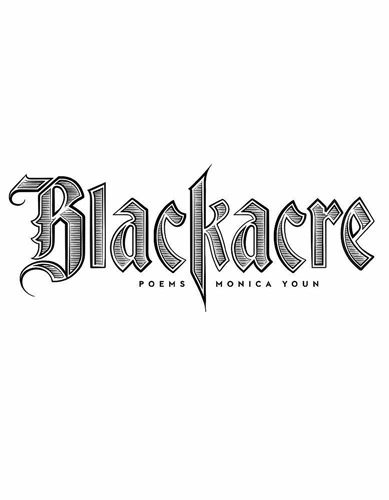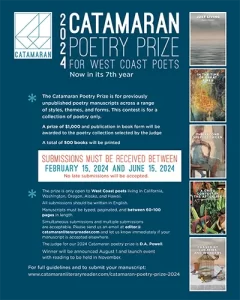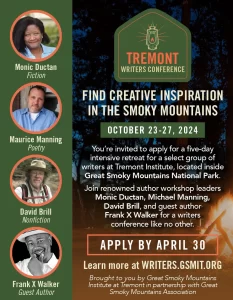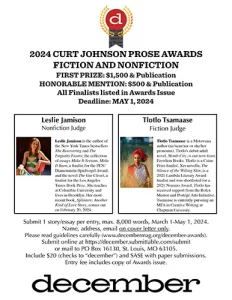Blackacre
The synopsis at the back of Monica Youn’s Blackacre, describes the poems in this collection as “treacherously lush or alluringly bleak.” And they are.
The synopsis at the back of Monica Youn’s Blackacre, describes the poems in this collection as “treacherously lush or alluringly bleak.” And they are. They are also “(t)he minor winds”. . . that “tug at” the speaker in “Lamentation of the Hanged Man”:
each with its own
pained sense
of imperative.
In “Hangman’s Tree,” they are:
a triple
helix of spiraling
bark verticals
sketching the outlinewhere the tree
used to be.
They are “the nerves / frenzy feeding / on nothing” in “the Hanged Men Reprise” and “something cone-shaped, nearly discernible, starting to resemble a cry” in “Sunrise: Foley Square.”
They are “from a bird’s unappeasable body” (“Epyphite”) and “extruded, quivering with volatility in a metal mold” (“Goldacre”).
They are “(g)old flecked, dark-rimmed, opaque,” “the exact square footage of a city block,” and “(s)tanding face to face—not embracing” (“Greenacre”).
And they are:
teeming with a turbulent rush of particles
like the inner workings of a throat exposed andwhose dimensions were expanding with shocking speed,
accumulating mass, accumulating coherenceand righteousness, pulling more and more
of the disintegrating terrace into its form. . . (Brownacre 59-60)
They are not “wordless, ceaseless,” says the speaker in “Blueacre,” “a second seamless skin—”
No, they are “(w)oven tight enough to repel need—a liquid beading on the surface” says the speaker in “Blackacre” because, “(t)he Greeks / were wrong,” says the speaker in “Portrait of a Hanged Woman,”
Necessity
is not a weaver,
there is no spindlein her hand;
it is a woman
wearing a steelcollar, wearing
a stiffly pleated
dress, which liftsto reveal nothing
but fabric where
her body used to be.
Nothing beneath the fabric of these poems is less than dangerous and enticing as Youn pulls from references to Greek mythology, Milton, C. S. Lewis, and Francois Villon to imagine a fictional space, a nonexistent body, an uncreated void that, while realized on these pages, or “on paper” if you will, can never be transferred, appreciated, or owned. As explained on the manuscripts last page, Youn, a former lawyer, titles her work after the term for this “legal fiction,” blackacre, a “standard placeholder,” to “denote a fictional plot of land.”
Her reference to this legal fiction speaks on several levels in the poetry, some personal, some abstract, but most concrete as the objects, memories, and individuals we hold and let go of. . . all of them territory worth our discovery.
Watch your footing, slow your breath, explore, be haunted. Blackacre.





